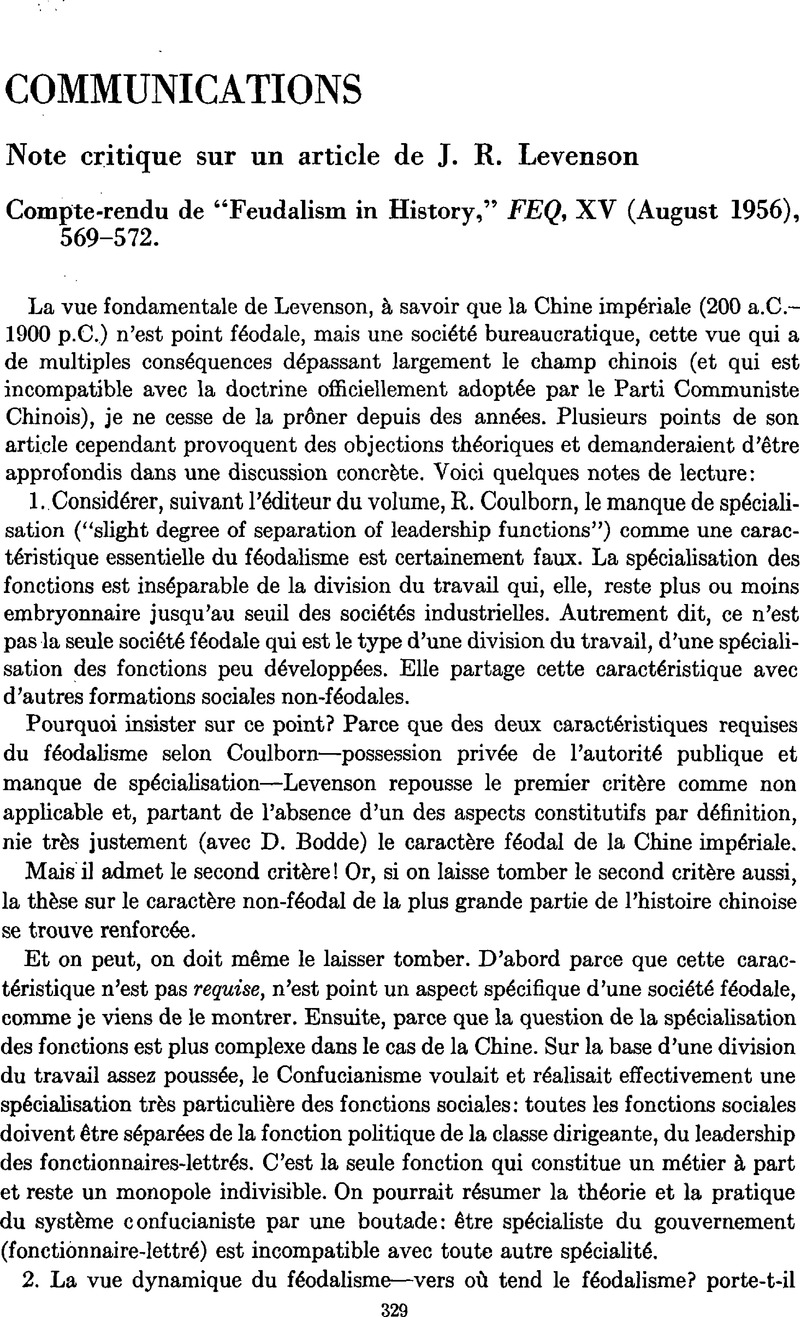No CrossRef data available.
Published online by Cambridge University Press: 23 March 2011

1 Une vie humaine ne se juge qu'après son accomplissement; je crois que cette idée existentialiste est également valable pour les sociétés et les classes sociales. La Révolution Française est devenue toute différente depuis 1917 et la Révolution d'Octobre ne cease de changer de signification (Staline, révolution chinoise, etc.). L'idée a été souvent exprimée. Par exemple:
Time past and time future
What might have been and what has been
Point to one end, which is always present. …
Or say that the end precedes the beginning,
And the end and the beginning were always there
Before the beginning and after the end.
(T. S. Eliot, Burnt Norton)
2 “What are the forces inhibiting Chinese capitalism even while an ostensibly feudal, hence potentially capitalist society evolves into something anti-feudal … Why does a hypothetical feudalism yield to a bureaucratic society, which is not only anti-feudal but anticapitalist as well? … because, perhaps, in the Chinese environment down to modern times, centrally directed bureaucratic action, anti-feudal by nature, may have been a sine qua non of a viable social order … Recurrent bureaucratic exploitation … of an anti-feudal state power seems—without capitalism and yet with economic advantages—to have superseded a feudal type of exploitation of land withdrawn from the reach of the state.” (Les deux premiers italiques sont les miens.) Levenson, , p. 571.Google Scholar
3 Ce n'est pas l'endroit pour discuter ici la diversité des périodes en lesquelles on peut ou doit diviser cette époque de 2.000 ans.
4 “… the undeniable qualitative change between pre-Ch'in and post-Ch'in society can be seen as transition from an incompletely feudal to an anti-feudal society; the inception of the latter, since it is also anti-capitalist—a permanent depressant of capitalism, in fact—comprises the incompleteness of the former.” (Mes italiques.) Levenson, , p. 571.Google Scholar
5 On pourrait précisément aj outer l'univers pluraliste de l'époque des Royaumes Combattants.
6 L'origine paysanne des innombrables transfuges de l'histoire chinoise—du fondateur des Han en l'occurence—n'y change rien.